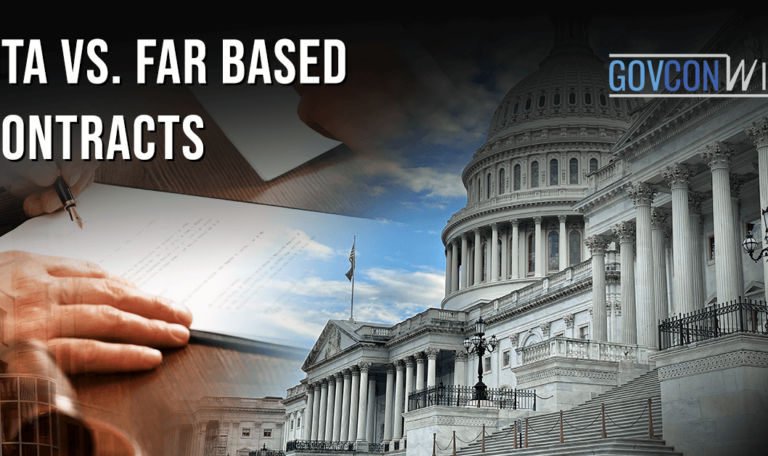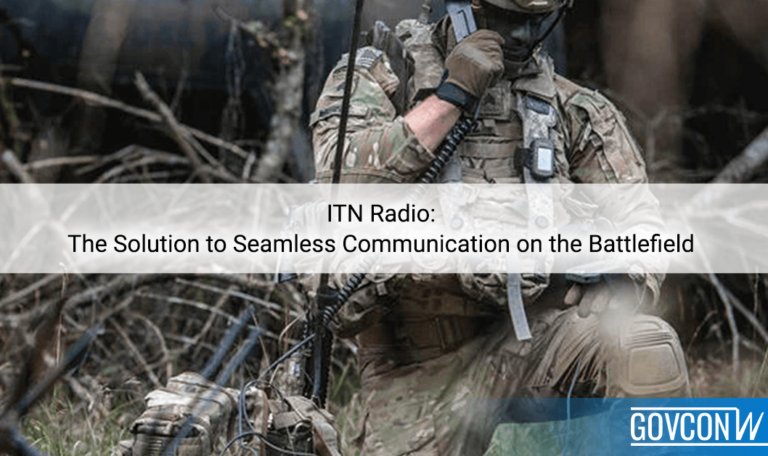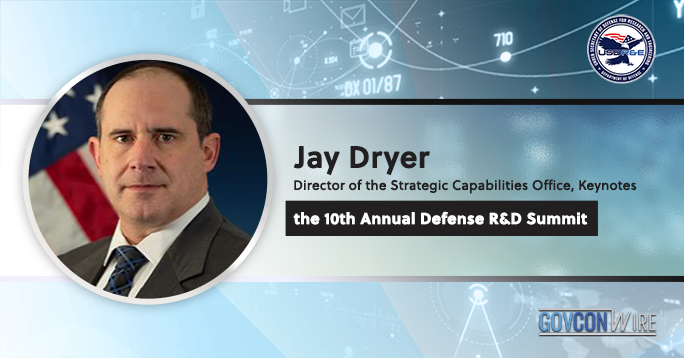The commercial business industry was dealt a bad hand past few years—from COVID-19 shutdowns to global supply chain disruptions. Countless small businesses closed their doors for good, negatively impacting several industries. However, the government contracting industry stood its ground.
Stability in the face of uncertainty and the opportunity to earn lucrative profits are just some of the reasons why starting a government contracting business could benefit you.
How Shold You Prepare to Become a Government Contractor?
Evaluate Whether Government Contracting Aligns With Your Business Goals
The GovCon industry is not an overnight miracle. Given how complicated it is, it requires patience, dedication and strategy to thrive.
Entering the federal contracting field unprepared will cost you. Before you decide to take the risk, make sure it will benefit your business’ overall growth. First study the pros and cons of GovCon before measuring them against your company’s goals. Once you have done that, evaluate if this business opportunity plays to your strengths.
Seek Government Assistance for Small Businesses
The GovCon field is dominated by established “prime contractor” firms, some of which are among the world’s most valuable businesses. This may create an uneven playing field for small businesses, which is why government assistance programs, loans, and grants are available for qualified businesses.
The Small Business Administration, or SBA, the cabinet-level federal agency fully dedicated to small business, administers a number of federal contracting assistance programs, such as:
8(a) Business Development Program
This program helps small businesses gear up to win local, state and federal government contracts. Under the 8(a) program, small businesses can compete for set-aside contracts and participate in SBA’s Mentor-Protégé program.
Participating small businesses will also receive one-on-one training with business opportunity specialists and procurement and compliance experts. They can help budding GovCons assess their business readiness for competing for federal contracts.
Women-Owned Small Business Program
Women still face discrimination in various industries. So to ensure female business leaders will have equal access to contracting opportunities, the Women-Owned Small Business Program gives them additional contracting opportunities through set-asides.
Also, certified women-owned small businesses and economically-disadvantaged women-owned small businesses are given preferential consideration for open and full competition government contracts.
HUBZone Program
If your business is located in a Historically Underutilized Business Zone (HUBZone), and at least 35% of your employees reside in a HUBZone, you can apply for this federal assistance program. Small businesses under this program can compete for set-asides.
Veteran Contracting Assistance Programs
Retired veterans, particularly service-disabled veterans who own small businesses, can apply for various assistance programs to kickstart their firms. Like other federal programs, veteran-owned small businesses are eligible to compete for exclusive government contracts for small businesses or set-asides.

Study Your Federal Contracting Market
Most businesses who enter the GovCon field want to earn substantial profits. Who wouldn’t? But, the government contracting industry is a massive field and shooting blindly will get you nowhere. If you want to make it big, you have to have a game plan—market research.
With that in mind, you must identify which federal agencies to target as early as possible. Once you have nailed down your prospective government agencies, you should dive deeper: study their demands and spending trends. Above all, get to know who you’ll be competing with.
For starters, you can get an overview of the government contracting field by checking previously awarded contracts at SAM.gov and viewing competitor profiles at Dynamic Small Business Search, or DSBS. You can also use this forecast tool for contracting opportunities from the General Services Administration. Learn more about the GovCon business market and hear directly from top-ranking DOD leaders on how to best fulfill their requirements at Potomac Officers Club summits, specifically curated for GovCon professionals!
Get Familiar With FAR
The Federal Acquisition Regulation is the playbook of every GovCon and contracting officer. The FAR describes the rules and regulations governing the government’s acquisition of goods and services.
Understanding intricate GovCon processes requires time, dedication and effort. You can also consult a legal representative or federal contracting assistance centers to help you understand them better.
Study Government Regulations on Businesses
To qualify as a government contractor, your business must comply with federal, state and local business regulations. There are around 90,000 business laws and regulations in effect. But you can learn the major business regulations for which you should pay closer attention.
Additionally, contracting assistance centers can connect you with compliance experts who will help you understand the legal implications of failing to follow the regulations and while also assessing your business’ regulatory compliance.
What Are the Requirements to Start a Government Contracting Business?

Acquire the Necessary Business Permits and Licenses
As previously stated, the government is very particular about companies for which to do business. In addition to being a regulation-compliant business, your business must possess the necessary licenses to prove its capabilities for performing the required services.
Register at SAM
SAM.gov is a one-stop platform for federal agencies and government contractors. On this website, agencies publish available contracts for bidding and contractors can bid for these contracts.
However, only SAM-registered entities can qualify for government contracts. Here are the primary documents you need to register:
Unique Entity ID
The federal government has finally moved away from requiring its contractors to request their DUNS Numbers. To streamline this process, government contractors can get their UEI at SAM.gov. Here is a guide on how you can request your UEI.
North American Industry Classification Code
NAICS Codes are a special set of codes representing your company’s industry. This code is used by contracting officers to identify the nature of your business and see if you fit the contract.
You can get your NAICS codes by visiting this self-service website. Select among the codes which best describes your business. If your business belongs to two or more categories, you can select more than one NAICS code.
Core Business Information
The Core Business Information refers to your business details, such as your business structure, physical and mailing address, organization start date and more
Financial Information
The government will ask for your financial information to learn your preferred payment method. Additionally, the government will also use this to set up your Electronic Funds Transfer, or EFT.
CAGE / NCAGE Code
The Commercial and Government Entity, or CAGE, and NATO CAGE, a.k.a. NCAGE, codes are identifiers assigned by the government, particularly by defense agencies. CAGE codes are assigned to U.S. entities, while NCAGE codes are awarded to businesses outside the U.S. and its territories.
The CAGE Code is automatically assigned to a U.S. entity after registering at SAM.gov. Meanwhile, non-U.S. entities should request NCAGE code before registering at SAM.gov.
Keep Tabs on Federal Contracting Opportunities
Once you have successfully registered your business at SAM.gov, you learn how to scout for contract opportunities. Fortunately, you don’t have to search high and low to explore the latest contract opportunities—you can do it at SAM.gov!
The federal government previously used the Federal Business Opportunities, or FedBizOpps, website, to publish contract opportunities. But the government has integrated the functionalities of FedBizOpps into the SAM.gov website for a more streamlined experience.

Explore Subcontracting
The road to becoming a federal contractor can be challenging, especially for a new small business owner. Fortunately, businesses can try their hand first by subcontracting for prime contractors.
Subcontractors do not work directly with government agencies. Instead, they lend their specialized expertise to prime contractors to fulfill one area of a federal contract. The requirements to become a subcontractor are less demanding than a prime contractor, making contracting more accessible to small businesses.
Build Your Business’ Reputation
Building a solid reputation and portfolio is crucial in GovCon. However, getting your business known by your target government agencies can be pretty daunting, especially if you don’t know where to begin. But we have your back!
Attend Networking Events
Being in the same room with other federal contracting giants can be overwhelming. But if you look at it from another angle, you will realize that you are surrounded by opportunities.
Networking, when done right, can give you access to a myriad of opportunities that grow your business and expand your vision as a leader. Contrary to popular belief, networking is not merely “politicking.” It means fostering meaningful relationships with your peers.
Build Your Social Media Presence
On top of attending networking events, you should not forget the power of the internet. Platforms like LinkedIn and Facebook are excellent ways to build your online presence and network with other contracting professionals.

Learn How to Write Bids for Government Contracts
Once you have built your GovCon foundation, you then have to learn how to write bids. Winning a contract is your ticket to becoming a full-fledged federal government contractor. Here are some bid writing tips that can help you win your first government contract:
Choose Federal Contracts That Align With Your Business’ Strengths and Goals
Sending out bids en masse in hopes of landing a single win is a waste of time.
Writing a contract bid proposal takes time, money and effort. Therefore, to write a winning contract bid, you must select which federal opportunities are most suited for your businesses.
Analyze the RFP
The request for proposal, or RFP, is a common way the federal government solicits contract proposals.
The RFP is usually a one hundred-page document that states everything you need to know about a contract opportunity—timeframe, task, budget and other related details. At first, reading through a one hundred-page document might seem overwhelming. But, this will ultimately help you craft your proposal.
There are several factors to consider when reviewing this document, but you must pay closer attention to sections B, C, L, and M.
Strictly Adhere to the RFP’s Instructions
It pays to be detail-oriented in this phase of proposal writing. In Section L of the RFP, the requesting federal agency will lay out detailed requirements for your proposal—from the document’s font style and size to the proper email address for which to send your proposal.
Neglecting to follow their instructions can eliminate your proposal from consideration.
Create a Bid Outline
The next step of the writing process is to draft an outline. This will prevent your proposal from being derailed while, ultimately, accelerating your writing.
When creating an outline for your proposal, consider several factors that the federal agency will look for, such as your business identity, capability statement, portfolio and plan to execute the contract.
Price Your Contract Competitively
When pricing your goods and services, you should know their market prices.
Price them too cheap and you may endanger the financial stability of your company, and even cast doubt on your ability to deliver quality products and services. On the other hand, if you price them too high, the federal government will simply look for other cost-efficient government contractors.
Going to the extreme ends of the spectrum will not do you any good. Keep in mind that the federal government is looking for contractors who can deliver quality work that falls within justifiable costs.
Review Your Proposal Before Submitting
The last thing you want is to have your bid discarded due to technicalities. To avoid this, bring in a trusted set of eyes to review your federal contract bid to catch any errors and point out questionable details that you may have missed.
Learn the terms, the contract bid writing process and how contracting officers will evaluate your proposal in this contract bid writing guide.
Summary
The federal government offers some of the best business opportunities, especially for small companies. But to be eligible for these, you must first make the necessary preparations to become a GovCon. Once you have built your foundation, you should sharpen your writing skills to win a contract bid. Learn more about the latest DOD business opportunities and hear directly from top-ranking DOD leaders on how to best fulfill their requirements at Potomac Officers Club summits, specifically curated for GovCon professionals!















